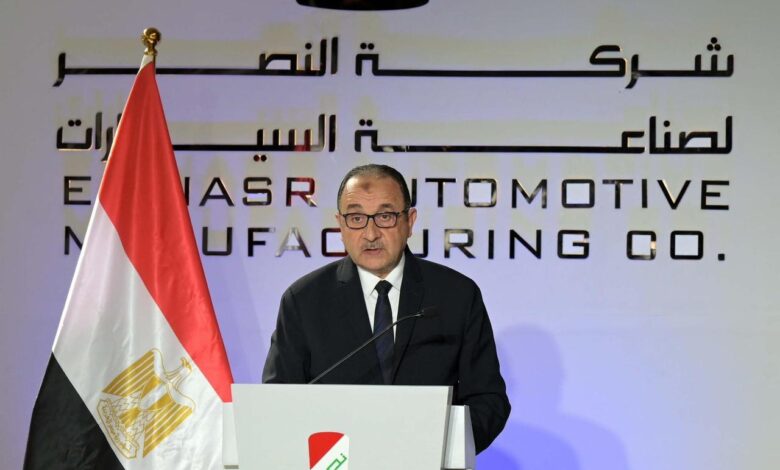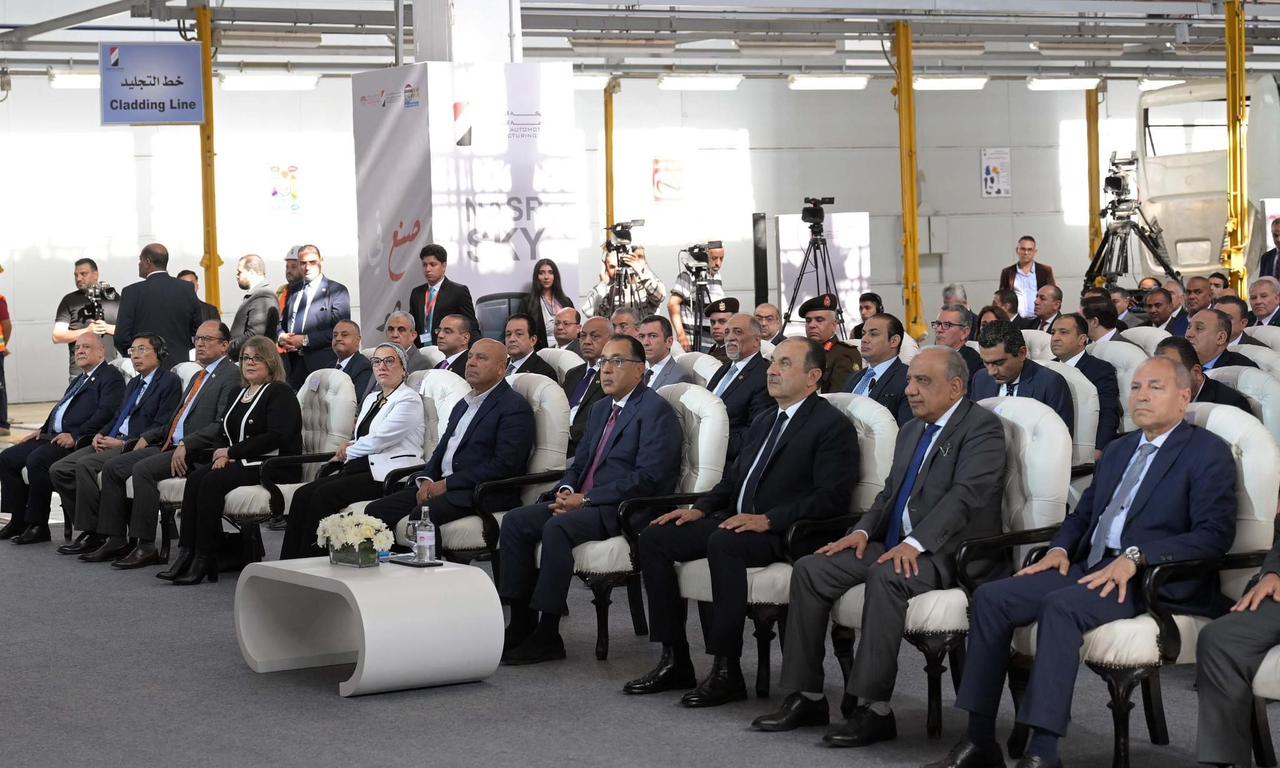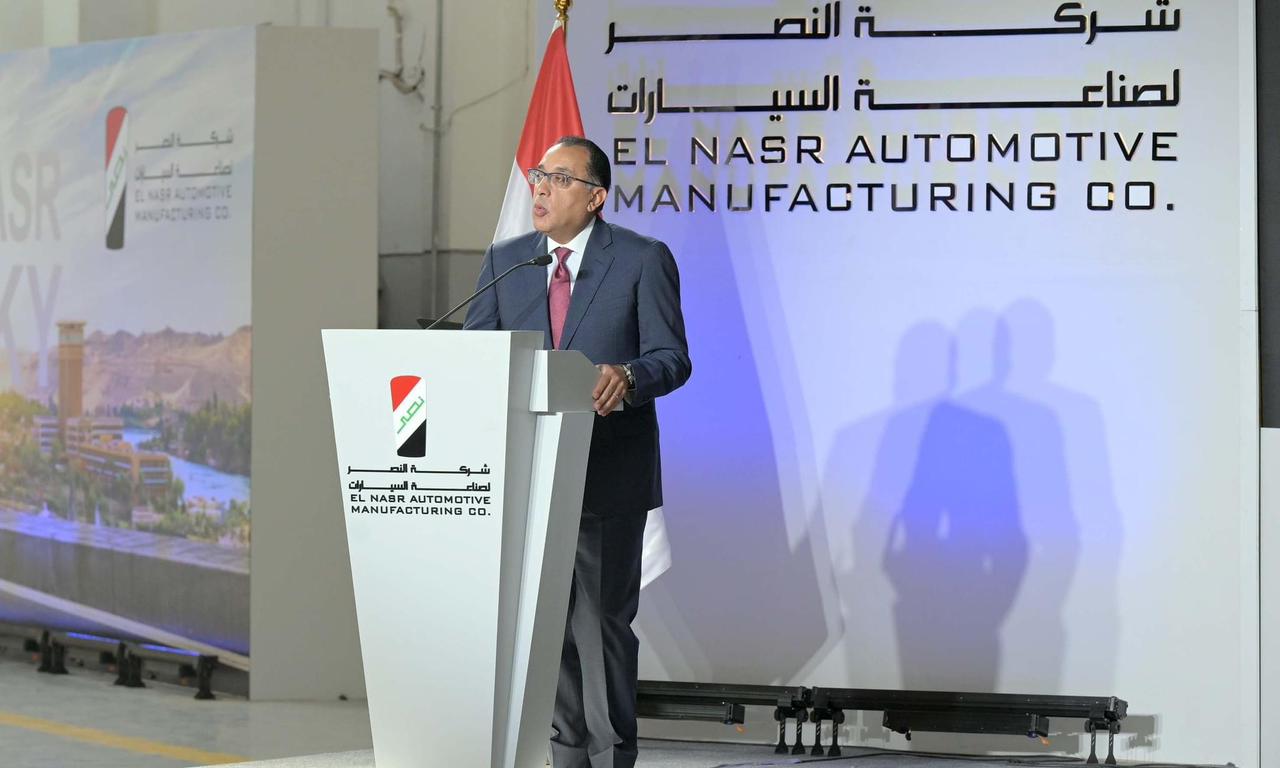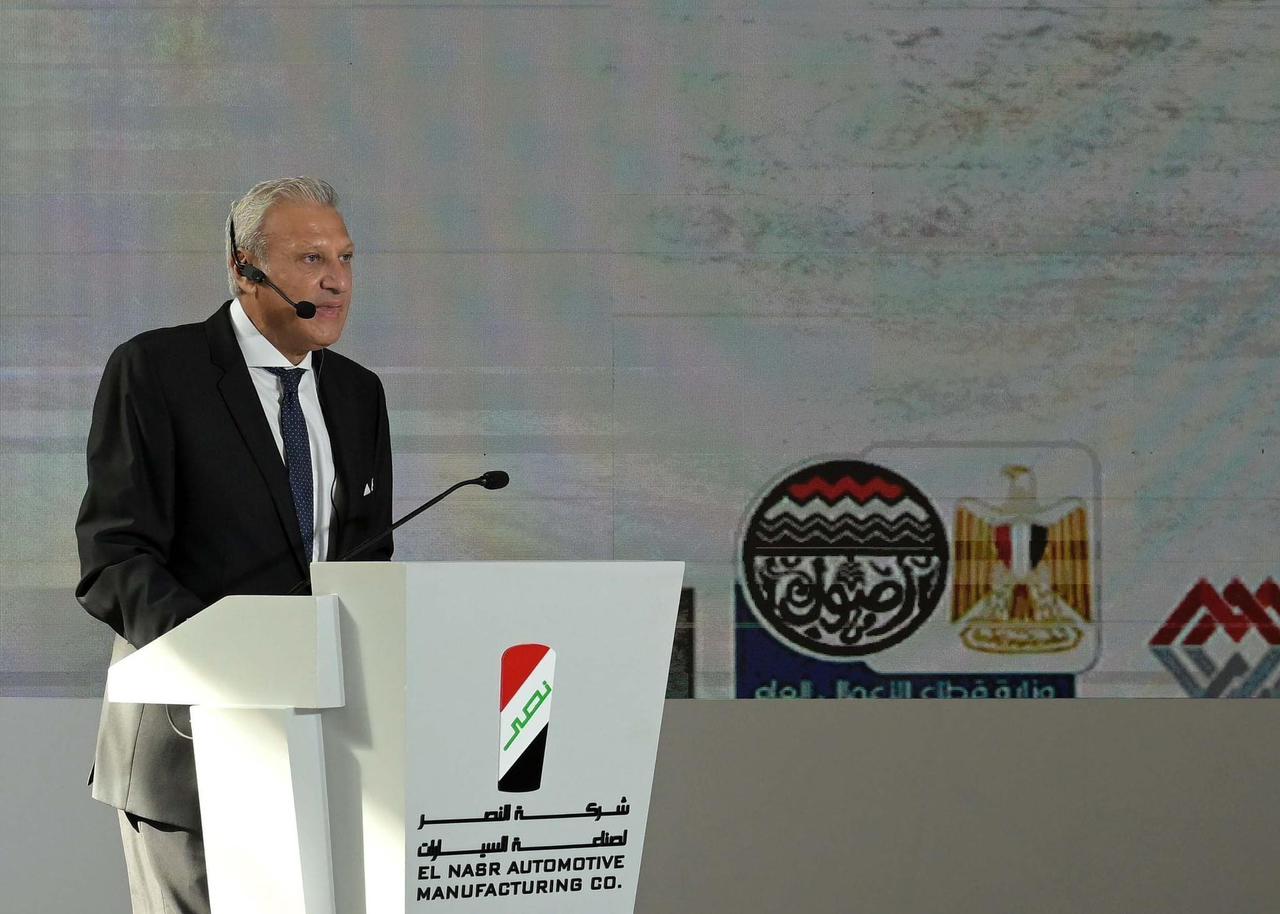Prime Minister Madbouly: “Today is a Celebration as Al-Nasr Automotive Returns to Life”

Prime Minister Madbouly: “Today is a Celebration as Al-Nasr Automotive Returns to Life”
Dr. Mostafa Madbouly, Prime Minister of Egypt, celebrated the revival of Al-Nasr Automotive Company, marking the restart of production after a 15-year hiatus.
Speaking at a ceremony hosted by one of Egypt’s national industrial landmarks, he declared the occasion a “holiday” for the nation, as the long-held dream of seeing this industrial giant revived had finally come true.
Madbouly highlighted the government’s strategic efforts to ensure the sustainable return of Al-Nasr Automotive Company.
He emphasized the importance of fostering partnerships with international organizations to guarantee efficient and effective operations, ensuring the company is equipped to meet both local and global market demands.
Reviving an Industrial Icon
The Prime Minister underscored the significance of Al-Nasr Automotive as a symbol of Egypt’s industrial heritage.
He explained that its revival was not merely about restarting operations but about laying the groundwork for a sustainable future.
This was achieved through strategic partnerships with the private sector, which brings expertise in market dynamics, operational efficiency, and profitability.
“The state has always recognized the value of its industrial assets,” Madbouly affirmed. “
The decision to revive Al-Nasr Automotive was a deliberate, strategic choice to maximize the potential of our existing infrastructure, skilled workforce, and industrial capabilities.”
Egypt’s Automotive Ambitions
Madbouly expressed confidence in Egypt’s ability to become a leader in the automotive industry, noting the country’s unique geographic advantages and growing domestic demand.
He highlighted that Egypt’s annual local market requires nearly half a million vehicles, a figure set to increase by 2030 with population growth and economic expansion.
Drawing comparisons to other African nations, he pointed out that while some countries started their automotive journeys relatively recently, they now produce over half a million cars annually.
“Egypt has no less potential than these nations,” he asserted, “and can achieve even greater success.”
Strengthening Local Manufacturing
The Prime Minister emphasized the need to increase the local component in vehicle production.
Currently, 50% of the components for buses being launched are locally sourced, but Madbouly aims to raise this figure to 70%.
He outlined plans for establishing a comprehensive supply chain, including manufacturing essential parts such as bodies, panels, glass, and electric motors.
In alignment with global trends, Madbouly also highlighted Egypt’s commitment to developing electric vehicle (EV) infrastructure, including a factory dedicated to producing batteries for EVs.
A Collaborative Approach
Madbouly reiterated that the revival of Al-Nasr Automotive exemplifies the government’s policy of collaborating with the private sector to manage and operate state assets effectively.
This approach, he explained, reflects the broader vision outlined in the state ownership policy document, which prioritizes maximizing the value of state assets rather than divesting them.
A Message of Hope
Speaking directly to the factory workers, Madbouly expressed his heartfelt gratitude for their dedication, urging them to “preserve this factory, as it represents your future, your children’s future, and the future of this country.”
He acknowledged the efforts of all parties involved in restoring Al-Nasr Automotive and reaffirmed the government’s commitment to supporting the industrial sector.
Vision for the Future
The Prime Minister concluded by highlighting President Abdel Fattah El-Sisi’s directives to prioritize industrial development, especially in the automotive sector.
He assured that the coming period would bring further progress and opportunities for Egypt’s industrial landscape, driven by the collective efforts of the government, the private sector, and the Egyptian people.
“Today is a proud moment for all Egyptians,” Madbouly said, “as we celebrate the revival of one of our greatest industrial landmarks.
The wheels of production are turning once again, and this is just the beginning of a brighter future for Egypt’s industrial sector.”




